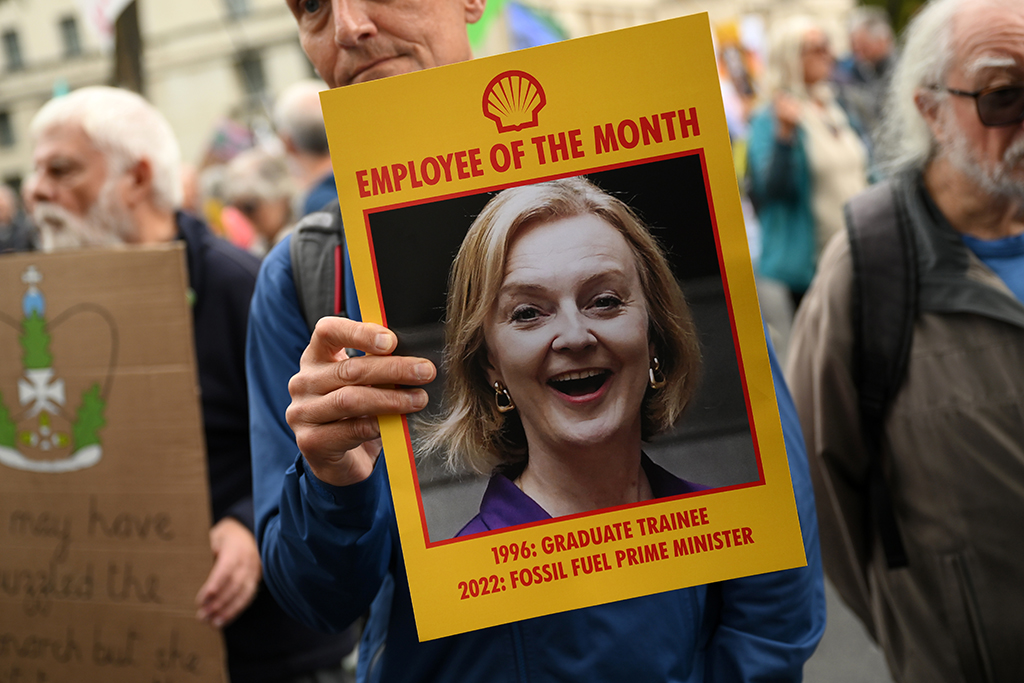LONDON: Britain's new finance chief Jeremy Hunt on Monday axed debt-fuelled tax cuts to further calm market turmoil, in another major government U-turn that appears to leave Liz Truss's position as prime minister in a precarious state. Hunt estimated that the tax changes would raise about £32 billion ($36 billion) per year, after economists estimated the government faced a £60-billion black hole in the public finances. He also warned of spending cuts.
Chancellor of the Exchequer Hunt, parachuted into the job on Friday to replace sacked Kwasi Kwarteng, said no government could control markets-but stressed his action could give certainty over the health of public finances. "We will reverse almost all the tax measures announced... three weeks ago," Hunt said in a televised statement, conceding last month's budget from his predecessor had harmed the public purse. "The most important objective for our country right now is stability," he added in a contrite statement.
Tax U-turns
Hunt scrapped plans to axe the lowest rate of income tax, and curbed the government's flagship energy price freeze-pulling the plug in April instead of late 2024. After April, the government will "review" its energy support package, he said. A proposed reduction in shareholder dividend tax was also binned, along with planned tax-free shopping for tourists and a freeze on alcohol duty.
The announcement comes as Truss' governing Conservative party tanks in the opinion polls amid Britain's worsening cost-of-living crisis. Truss fired her close friend Kwarteng on Friday after their recent tax-slashing budget sparked markets chaos-fuelling intense speculation over her political future one month after taking office.
"No government can control the markets but every government can give certainty about the sustainability of public finances," Hunt added Monday. His action sent the British pound briefly jumping to $1.1331, while bond yields dipped. Last month's notorious budget sent bond yields spiking and the pound collapsing to a record dollar-low on fears of rocketing UK debt.
'Difficult decisions ahead'
Tax reductions were the centerpiece of the ill-starred budget, but they were financed via huge borrowing. Truss had already staged two humiliating budget U-turns, scrapping tax cuts for the richest earners and on company profits.
Following his appointment, Hunt hit the ground running Saturday with a warning of tax hikes as he dramatically reversed course on Truss's radical program of economic reform. "There will be more difficult decisions I am afraid, on both tax and spending, as we deliver our commitment to get debt falling as a share of the economy over the medium term," he said Monday.
"All departments will need to redouble their efforts to find savings, and some areas of spending will need to be cut." Hunt already warned that he was not taking anything off the table" amid speculation of painful cutbacks on critical areas like defense, hospitals and schools.
Hunt met over the weekend with the governor of the Bank of England, Andrew Bailey, and the head of the Debt Management Office to discuss his plans. In the wake of the earlier turmoil, the BoE launched emergency buying of UK government bonds-a policy that ended Friday.
The furor over the budget has reportedly sparked a plot to oust the prime minister. UK media reported that senior Conservative members of parliament were plotting to unseat Truss, aghast at the party's performance since she replaced scandal-hit Boris Johnson on September 6. Party grandee and former leader William Hague said Truss' premiership was "hanging by a thread" after Kwarteng was unceremoniously fired. - AFP











